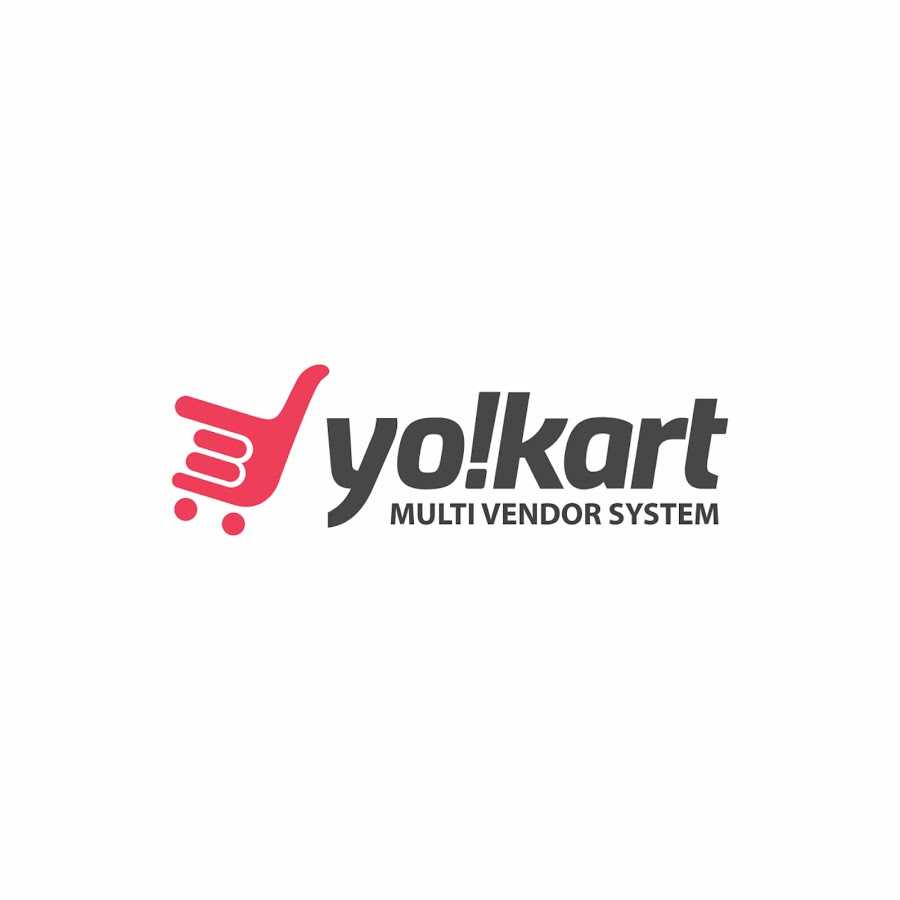Description

Yo!Kart

Shipway
Comprehensive Overview: Yo!Kart vs Shipway
Yo!Kart and Shipway are distinct platforms serving different aspects of e-commerce, each tailored to different functionalities and target markets. Here's a detailed overview:
Yo!Kart
a) Primary Functions and Target Markets:
- Primary Functions: Yo!Kart is a multi-vendor e-commerce platform designed to enable businesses to create their own online marketplaces. Users can host various sellers who manage their own inventories and products, while the platform owner oversees the overall operation. Key features include product management, order management, payment gateways, supplier management, and analytics.
- Target Markets: Small to medium-sized businesses (SMBs) and entrepreneurs looking to create e-commerce marketplaces akin to Amazon, eBay, or Etsy. Its versatility also makes it suitable for niche markets and industry-specific platforms.
b) Market Share and User Base:
- Overall Market Share and User Base: As a highly customizable solution, Yo!Kart has carved a niche for itself among startups and SMBs looking for an affordable way to launch multi-vendor platforms. While not as prominent as heavyweight e-commerce solutions like Shopify or WooCommerce, it holds considerable appeal among its target demographic due to its affordability and the ability to scale.
c) Key Differentiating Factors:
- Customizability: Offers highly customizable features, appealing to users who need specific functionalities tailored to their business model.
- Scalability: Built to accommodate growing businesses with increasing numbers of vendors and products.
- Focused Niche: Specifically targets businesses seeking to run a multi-vendor marketplace rather than single-vendor e-commerce stores.
Shipway
a) Primary Functions and Target Markets:
- Primary Functions: Shipway provides shipping and logistics solutions geared toward enhancing order tracking and customer communication. It integrates with various e-commerce platforms to improve efficiency in shipping operations, offering features like real-time shipment tracking, automated notifications, returns management, and analytics.
- Target Markets: E-commerce businesses of various sizes, including those who require robust shipping tracking and communication capabilities, such as fulfillment centers and direct-to-consumer brands.
b) Market Share and User Base:
- Overall Market Share and User Base: Shipway has gained traction among e-commerce businesses that value enhanced shipping management and customer experience. It largely appeals to businesses that seek to optimize their customer service related to delivery experiences. Its precise market share is less publicly documented compared to major logistics and shipping platforms but is growing due to increasing emphasis on delivery performance in e-commerce.
c) Key Differentiating Factors:
- Real-Time Tracking: Provides comprehensive and real-time insights into the shipping status, which is essential for businesses that prioritize efficient delivery and customer satisfaction.
- Integration Capabilities: Easily integrates with major e-commerce platforms, providing flexibility for businesses already using a different primary e-commerce solution.
- Customer Communication: Automates customer notifications regarding order status, delivery updates, and returns, enhancing the user experience.
Comparison Summary
Yo!Kart and Shipway serve different segments of the e-commerce ecosystem:
- Functionality: Yo!Kart focuses on creating marketplaces, whereas Shipway focuses on post-purchase logistics, particularly shipping and tracking.
- Target Market Differences: Yo!Kart is more about enabling sales and business growth through multi-vendor marketplaces, while Shipway enhances customer experience through logistics and customer communication.
- Complementary Use: They could be used together, with Yo!Kart powering marketplace architecture and Shipway enhancing the shipping processes for the sellers on these marketplaces.
Both platforms offer unique value, appealing to businesses prioritizing either scalable sales platforms or customer-focused logistics improvements.
Contact Info

Year founded :
2014
+91 85919 19191
Not Available
India
Not Available

Year founded :
2009
+92 52 4269191
Not Available
Pakistan
http://www.linkedin.com/company/shipwaylogistics
Feature Similarity Breakdown: Yo!Kart, Shipway
When comparing platforms like Yo!Kart and Shipway, which serve different primary functions—Yo!Kart as an eCommerce marketplace solution and Shipway as a shipping and logistics management tool—it's essential to identify both commonalities and unique elements tailored to their specific market niches. Here's a breakdown:
a) Core Features in Common
While Yo!Kart and Shipway cater to different aspects of eCommerce, they can share a few core features, particularly focusing on streamlining operations and enhancing user experience:
-
Order Management:
- Both systems offer comprehensive order management features, allowing users to track and manage customer orders efficiently.
-
Integration Capabilities:
- They both support integrations with various third-party applications to extend functionality, such as payment gateways for Yo!Kart and courier services for Shipway.
-
Analytics and Reporting:
- Each platform provides analytics tools to help businesses monitor performance, understand customer behavior, and make data-driven decisions.
-
User Management:
- Both offer robust user management systems, enabling the creation of multiple user roles and permissions.
b) User Interface Comparison
When analyzing the user interfaces of Yo!Kart and Shipway, the comparison hinges on their purpose alignment and ease of use:
- Yo!Kart:
- Designed to cater to a wide range of users, including marketplace administrators, vendors, and customers.
- The interface tends to focus on ease of product listing, customization for storefronts, and customer engagement features.
- Offers a visually-rich and customizable front-end, emphasizing branding and design flexibility.
- Shipway:
- Prioritizes functionality that supports seamless logistics and shipping management.
- Focuses on clarity and simplicity, often presenting users with dashboards that consolidate tracking, shipment status, and logistical data.
- Its UI is more streamlined towards operational efficiency rather than visual aesthetics.
c) Unique Features
Each system has distinct features that set them apart due to their targeted functionalities:
-
Yo!Kart:
- Multi-Vendor Capabilities: Robust support for multi-vendor setups, allowing different vendors to sell on a single platform while maintaining their unique profiles.
- Comprehensive Vendor Management: Features like vendor-specific commissions, product uploads, and personalized dashboards for vendors.
- Custom Storefronts: Vendors can design their storefronts to align with their brand, offering huge customization options.
-
Shipway:
- Advanced Shipment Tracking: Provides real-time tracking updates and notifications, ensuring customers are kept informed about the status of their orders.
- Return Management System: Efficient handling of returns and refunds, which can be complex in the logistics space.
- Courier Recommendation and Integration: Offers unique integration capabilities and recommendations for selecting the best courier services based on shipping needs.
Overall, while Yo!Kart excels in providing a platform for setting up and managing an online marketplace, Shipway specializes in logistics and shipping management, with each software bringing critical features specific to its domain. These distinctions make them complementary rather than directly competing products.
Features

Not Available

Not Available
Best Fit Use Cases: Yo!Kart, Shipway
Sure! Let's break down the use cases for Yo!Kart and Shipway to understand where each excels.
Yo!Kart
a) Best Fit for Yo!Kart:
-
Multi-Vendor Marketplaces: Yo!Kart is specifically designed for businesses looking to create a platform where multiple sellers can offer their products. It's an ideal choice for entrepreneurs or companies wanting to develop marketplaces similar to Amazon, eBay, or Etsy.
-
Niche Market Platforms: Companies interested in creating platforms that focus on specific industries or product lines can benefit from Yo!Kart's customization capabilities. For example, a marketplace focused solely on eco-friendly products.
-
Startups & SMEs: Small to medium-sized enterprises or new startups that require a scalable and robust solution to venture into the e-commerce marketplace industry can leverage Yo!Kart's features and affordability.
-
Global and Local Marketplaces: Yo!Kart supports multiple languages and currencies, which makes it a good fit for businesses targeting international markets or those focusing on specific regions or localities.
d) Industry Verticals & Company Sizes:
- Retail & E-commerce: Well-suited for the retail industry, particularly businesses looking to digitize and expand their reach through online channels.
- Fashion, Electronics, Handmade Goods: Companies in these sectors can create specialized marketplaces effectively.
- Medium to Large Enterprises: While Yo!Kart is often chosen by startups, its scalability makes it suitable for larger enterprises seeking robust solutions.
Shipway
b) Preferred Scenarios for Shipway:
-
E-commerce Businesses: Companies with online sales operations looking to enhance their logistics and shipping processes will find Shipway advantageous. It helps streamline order tracking and customer notifications.
-
Businesses Seeking Enhanced Customer Experience: Shipway provides tools for improving customer communication regarding order status, which is crucial for maintaining customer satisfaction and reducing inquiries.
-
Multi-Channel Retailers: Retailers operating both online and offline channels can use Shipway to integrate their logistics operations, ensuring consistency and efficiency across all channels.
-
Companies Needing Returns Management: Businesses that require a robust system for handling returns, including automated communication and tracking, can benefit from Shipway.
d) Industry Verticals & Company Sizes:
- E-commerce, Retail, and Logistics: Primarily aimed at enhancing logistics operations in these sectors.
- Small to Medium Enterprises (SMEs): While suitable for larger companies, Shipway's solutions are particularly valuable for SMEs that require cost-efficient logistics solutions.
- Fashion, Electronics, FMCG: Companies in these industries can see marked improvements in delivery performance and customer satisfaction with Shipway's tools.
In summary, Yo!Kart is an excellent choice for creating multi-vendor marketplaces with scalability and customization, suitable for diverse business sizes and industries focused on e-commerce. Shipway shines in logistics and shipping reliability, making it ideal for e-commerce businesses looking to enhance operational efficiency and customer communications.
Pricing

Pricing Not Available

Pricing Not Available
Metrics History
Metrics History
Comparing teamSize across companies
Conclusion & Final Verdict: Yo!Kart vs Shipway
To provide a comprehensive conclusion and final verdict for Yo!Kart and Shipway, we'll analyze these platforms based on different factors such as functionality, cost, user experience, and target audience.
a) Overall Value
Yo!Kart: Yo!Kart is primarily a customizable eCommerce platform designed for creating multi-vendor marketplaces. Given its robust functionality, ease of customization, and scalability, it offers comprehensive solutions for startups and established businesses looking to create an online marketplace.
Shipway: Shipway focuses on enhancing post-purchase customer experience by providing shipment tracking, notifications, and returns management services. It is an excellent addition for eCommerce businesses looking to streamline their logistics operations and improve customer satisfaction.
Best Overall Value: The best overall value largely depends on the specific needs of the business. If the primary need is to set up a multi-vendor eCommerce platform, Yo!Kart offers greater value. For businesses focused on improving the logistics side of their operations, especially shipment tracking and communications with customers, Shipway stands out.
b) Pros and Cons
Yo!Kart
Pros:
- Comprehensive eCommerce features with multi-vendor capabilities.
- High level of customization and scalability.
- Strong customer support and ongoing updates.
- No recurring fees; one-time licensing cost.
Cons:
- Requires initial investment, which might be higher than some SaaS solutions.
- May require technical expertise for complex customizations.
- Primarily focused on marketplace solutions, not single-vendor stores.
Shipway
Pros:
- Easy integration with existing eCommerce platforms.
- Improves shipping transparency and customer satisfaction.
- Enhances customer communication with automated alerts.
- Cost-effective solution for shipment tracking and logistics enhancements.
Cons:
- Not a standalone eCommerce solution; it's an add-on for shipment management.
- Limited features for businesses not heavily reliant on logistics.
- Dependent on third-party carriers for comprehensive functionality.
c) Specific Recommendations
-
For Startups and New Marketplaces: If you're starting a multi-vendor marketplace, Yo!Kart offers the essential tools and features to build a robust platform. Consider Yo!Kart if your primary goal involves creating and managing a marketplace with multiple sellers and complex product offerings.
-
For Established eCommerce Businesses: If you already have an established store and are looking to enhance your logistics and post-purchase customer experience, Shipway can offer significant benefits. It's a practical choice if optimizing shipment processes and customer communication is a priority.
-
For Hybrid Needs: Consider integrating both solutions if you're looking to create a marketplace with a strong focus on logistics. Using Yo!Kart as your primary platform and Shipway for shipment management can provide an excellent combination of robust marketplace functionality and superior logistics handling.
In conclusion, choosing between Yo!Kart and Shipway should align with your business model and priority needs. For marketplace setup, Yo!Kart offers substantial value, while Shipway is invaluable for businesses focusing on refining logistics and customer satisfaction post-purchase.
Add to compare
Add similar companies



